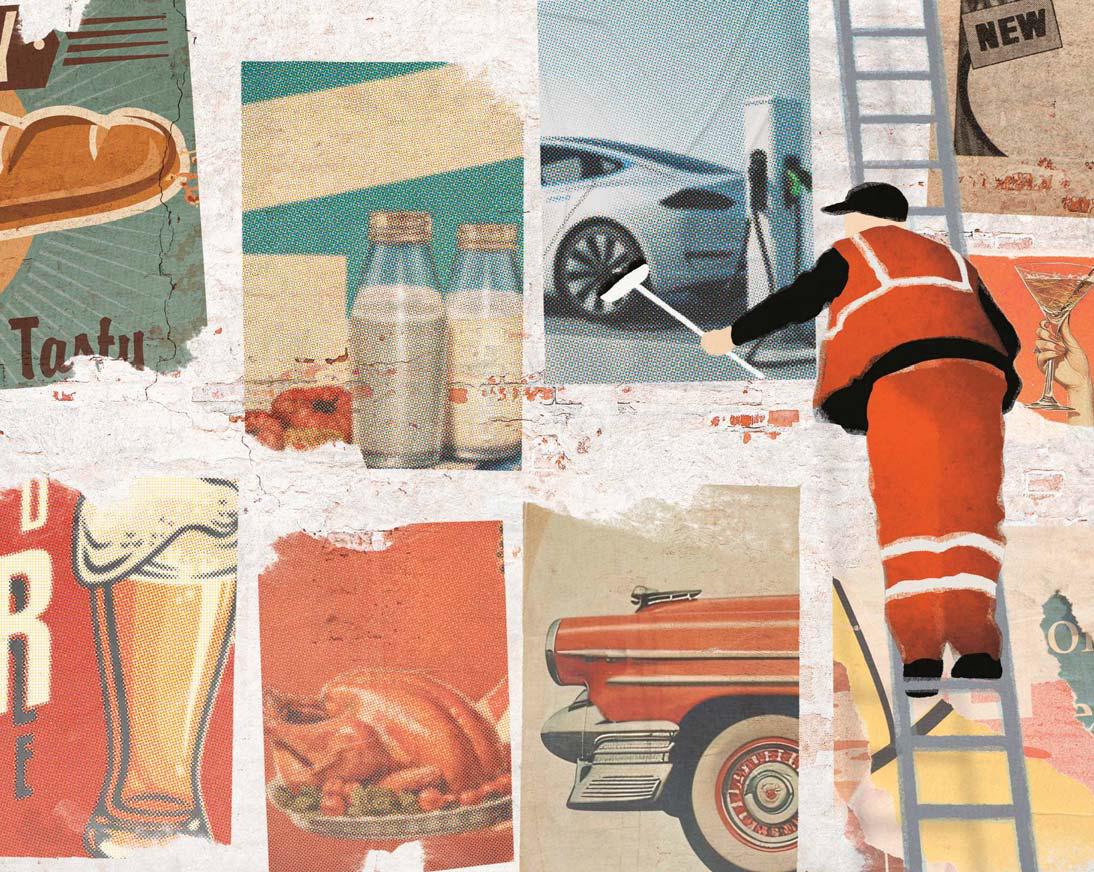Try GOLD - Free
"Trump's tariffs are dramatic only if you have a short historical memory"
BBC History UK
|May 2025
Tariffs and trade wars have hit the headlines in recent months as US president Donald Trump pursues aggressive economic policies. But are they really so unprecedented? FRANK TRENTMANN spoke to Matt Elton about centuries of 'discriminatory taxes'
-

Matt Elton Which historical precedents sprung to mind when you were reading the news about high tariffs being imposed by the US on imports of commodities such as steel and aluminium?
Frank Trentmann States have always tried to control what comes in and goes out. But it’s probably worth mentioning, in the current context, that a tariff was one of the first-ever acts of Congress passed by the United States in the late 18th century, mainly as a way to bring money into its coffers. And that’s one of the key points we should make about tariffs: although we tend to refer to them generically, they can have many different functions. One is raising revenue; another is to keep out foreign competition to benefit producers at home; yet another is as a negotiating tool, to improve trade or political relations.
The big problem we can see from history is that you can’t achieve those three goals simultaneously because they cancel out one another. So nations have come up with a range of different ways to try to reconcile those three aims and to maximise how well they work.
Is it true that, despite variations in form designed to balance those three objectives, tariffs are always taxes imposed on goods and services?
It’s important to make the point that a tariff is a discriminatory tax, to distinguish it from a regular revenue duty, which is not set out to be discriminatory. Britain in the Victorian and Edwardian eras, for instance, was a free-trade country which had revenue duties — for example, on beer - but these applied to domestic beer as well as foreign beer. They are so-called excise duties.
Tariffs only target foreign imports, with the specific purpose of giving home producers an advantage over foreign producers trying to sell their goods in your market, which it penalises. So that’s a big distinction.
This story is from the May 2025 edition of BBC History UK.
Subscribe to Magzter GOLD to access thousands of curated premium stories, and 10,000+ magazines and newspapers.
Already a subscriber? Sign In
MORE STORIES FROM BBC History UK

BBC History UK
Hymn to life
Scripted by Alan Bennett and directed by Nicholas Hytner - a collaboration that produced The Madness of King George and The History Boys – The Choral is set in 1916.
1 min
December 2025

BBC History UK
Helen Keller
It was when I was eight or nine years old, growing up in Canada, and I borrowed a book about her from my local library.
2 mins
December 2025

BBC History UK
Spain's miracle
The nation's transition from dictatorship to democracy in the late 1970s surely counts as one of modern Europe's most remarkable stories. On the 50th anniversary of General Franco's death, Paul Preston explores how pluralism arose from the ashes of tyranny
8 mins
December 2025

BBC History UK
Just how many Bayeux Tapestries were there?
As a new theory, put forward by Professor John Blair, questions whether the embroidery was unique, David Musgrove asks historians whether there could have been more than one 'Bayeux Tapestry'
7 mins
December 2025

BBC History UK
In service of a dictator
HARRIET ALDRICH admires a thoughtful exploration of why ordinary Ugandans helped keep a monstrous leader in power despite his regime's horrific violence
2 mins
December 2025

BBC History UK
The Book of Kells is a masterwork of medieval calligraphy and painting
THE BOOK OF KELLS, ONE OF THE GREATEST pieces of medieval art, is today displayed in the library of Trinity College Dublin.
3 mins
December 2025

BBC History UK
Passing interest
In his new book, Roger Luckhurst sets about the monumental task of chronicling the evolution of burial practices. In doing so, he does a wonderful job of exploring millennia of deathly debate, including the cultural meanings behind particular approaches.
1 mins
December 2025

BBC History UK
Is the advance of AI good or bad for history?
As artificial intelligence penetrates almost every aspect of our lives, six historians debate whether the opportunities it offers to the discipline outweigh the threats
8 mins
December 2025

BBC History UK
Beyond the mirage
All serious scholarship on ancient Sparta has to be conducted within the penumbra of the 'mirage Spartiate', a French term coined in 1933 to describe the problem posed by idealised accounts of Sparta.
1 mins
December 2025

BBC History UK
He came, he saw... he crucified pirates
Ancient accounts of Julius Caesar's early life depict an all-action hero who outwitted tyrants and terrorised bandits. But can they be trusted? David S Potter investigates
10 mins
December 2025
Listen
Translate
Change font size

